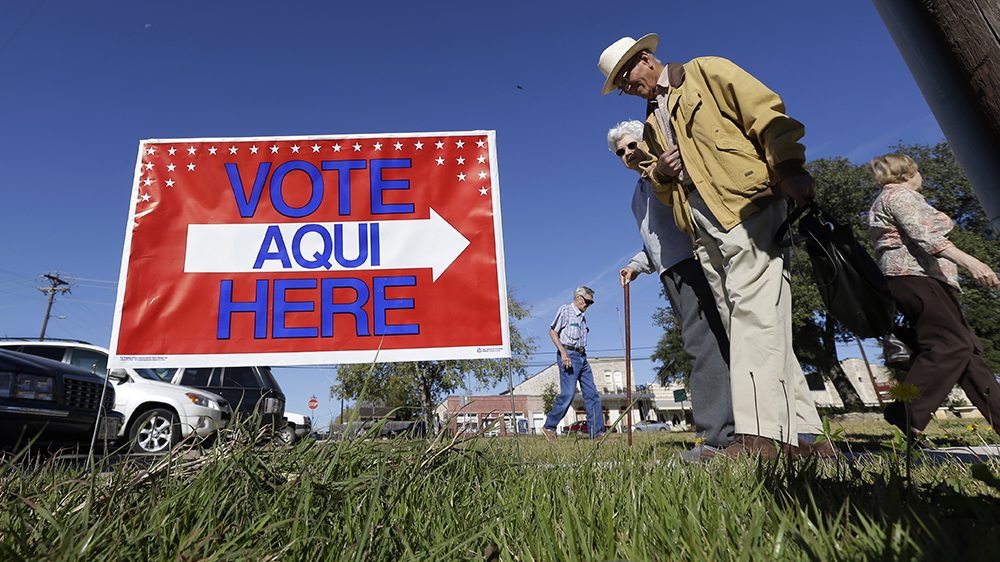Just one day after Paul Weiss’ deal, Columbia University disclosed policy changes under the threat of losing billions of dollars in federal money. A week later, the venerable law firm of Skadden, Arps, Slate, Meagher & Flom cut a deal of its own before it could be hit by an executive order. Before that, ABC News and Meta reached multi-million-dollar settlements to resolve lawsuits from Trump.
“The more of them that cave, the more extortion that that invites,” said Ty Cobb, a White House lawyer in Trump’s first term who has since become a sharp critic. “You’ll see other universities and other law firms and other enemies of Trump assaulted and attacked into submission because of that.”
Some within the conservative legal community, by contrast, say the Republican president is acting within his right.
“It’s the president’s prerogative to instruct the executive branch to do business with companies, law firms or contractors that he deems trustworthy — and the converse is true too,” said Jay Town, a U.S. attorney from Alabama during Trump’s first term. “The president, as the commander in chief, can determine who gets a clearance and who doesn’t. It’s as simple as that.”
Some targets have not given in, with two law firms since the Paul Weiss deal suing to block executive orders. Yet no matter their response, the sanctioned firms have generally run afoul of the White House by virtue of association with prosecutors who previously investigated Trump.
If the negotiations have been surprising, consider that Trump telegraphed his approach during the campaign. “For those who have been wronged and betrayed, I am your retribution,” he told supporters in March 2023.
Less clear was: Retribution for what exactly? Against whom? By what means?
The answers would come soon enough.
Fresh off surviving four federal and state indictments that threatened to sink his political career, and investigations that shadowed his first term in office, Trump came straight for the prosecutors who investigated him and the elite firms he saw as sheltering them.
His Justice Department moved almost immediately to fire the members of special counsel Jack Smith’s team and some prosecutors who handled cases arising from the Capitol riot on Jan. 6, 2021.
The White House followed up with an executive order that stripped security clearances from the lawyers at the law firm of Covington & Burling who have provided legal representation for Smith amid the threat of government investigations. Covington has said it looks forward to “defending Mr. Smith’s interests.”
A subsequent order punished Perkins Coie for its representation of then-Democratic presidential nominee Hillary Clinton during the 2016 campaign and its part in funding opposition research on Trump that took the form of a dossier containing unsubstantiated allegations about Trump’s ties to Russia.
Its business hanging in the balance, Perkins Coie hired Williams & Connolly, a Washington firm with an aggressive litigation style, to challenge the order. A federal judge said the administration’s action sent “chills down my spine” and blocked portions of it from taking effect. That decision could have been a meaningful precedent for other beleaguered firms.
Except that’s not what happened next.
The chairman of Paul Weiss said it, too, was initially prepared to sue over a March 14 order that targeted the firm in part because a former partner, Mark Pomerantz, had several years earlier overseen an investigation into Trump’s finances on behalf of the Manhattan district attorney’s office.
But the firm also came to believe that even a courtroom victory would not erase the perception among clients that it was “persona non grata” with the administration, its chairman, Brad Karp, later told colleagues in an email obtained by The Associated Press.
The order, Karp said, presented an “existential crisis” for a firm that has counted among its powerhouse representations the NFL and ExxonMobil. Some of its clients signaled they might abandon ship. The hoped-for support from fellow firms never materialized and some even sought to exploit Paul Weiss’ woes, Karp said.
“It was very likely that our firm would not be able to survive a protracted dispute with the Administration,” he wrote.
When the opportunity came for a White House meeting and the chance to cut a deal, he took it, pledging pro bono legal services for causes such as the fight against antisemitism as well as representation without regard to clients’ political affiliation. In so doing, he wrote, “we have quickly solved a seemingly intractable problem and removed a cloud of uncertainty that was hanging over our law firm.”
The outcry was swift. Lawyers outside the firm ridiculed it. More than 140 Paul Weiss alumni signed a letter assailing the capitulation.
“Instead of a ringing defense of the values of democracy, we witnessed a craven surrender to, and thus complicity in, what is perhaps the gravest threat to the independence of the legal profession since at least the days of Senator Joseph McCarthy,” the letter said.
Within days, two other firms, Jenner & Block and WilmerHale, were confronted with executive orders over their affiliation with prosecutors on Robert Mueller’s special counsel team that investigated Trump during his first term. Both sued Friday. WilmerHale, where Mueller is a retired partner, said the order was an “unprecedented assault” on the legal system. After hearing arguments, judges blocked enforcement of key portions of both orders.
Yet that very day, the White House trumpeted a fresh deal with Skadden Arps in which the firm agreed to provide $100 million of pro bono legal services and to disavow the use of diversity, employment and inclusion considerations in its hiring practices.
Trump has expressed satisfaction with his pressure campaign, issuing a directive to sanction lawyers who are seen as bringing “frivolous” litigation against the government. Universities, he marveled, are “bending and saying ‘Sir, thank you very much, we appreciate it.’”
As for law firms, he said, “They’re just saying, ‘Where do I sign?’ Nobody can believe it.’”
Uptown from Paul Weiss’s Midtown Manhattan home base, another elite New York institution was facing its own crucible.
Trump had taken office against the backdrop of disruptive protests at Columbia University tied to Israel’s war with Hamas. The turmoil prompted the resignation of its president and made the Ivy League school a target of critics who said an overly permissive campus environment had let antisemitic rhetoric flourish.
The Trump administration this month arrested a prominent Palestinian activist and legal permanent resident in his university-owned apartment building and opened an investigation into whether Columbia hid students sought by the U.S. over their involvement in the demonstrations.
In a separate action, the administration pulled $400 million from Columbia, canceling grants and contracts because of what the government said was the school’s failure to stamp out antisemitism and demanding a series of changes as a condition for restoring the money or for even considering doing so.
Two weeks later, the then-interim university president, Katrina Armstrong, announced that she would implement nearly all of the changes sought by the White House. Columbia would bar students from protesting in academic buildings, she said, adopt a new definition of antisemitism and put its Middle East studies department under new supervision.
The university’s March 21 rollout of reforms did not challenge the Trump administration’s coercive tactics, but nodded to what it said were “legitimate concerns” raised about antisemitism. The White House has yet to say if it will restore the money.
The Columbia resolution was condemned by some faculty members and free speech advocates.
“Columbia’s capitulation endangers academic freedom and campus expression nationwide,” Donna Lieberman, executive director of the New York Civil Liberties Union, said in a statement at the time.
Armstrong on Friday night announced her exit from the position and her return to her post atop the school’s medical center.
Columbia is not Trump’s sole target in academia. Also this month, the administration suspended about $175 million in federal funding for the University of Pennsylvania over a transgender swimmer who last competed for the school in 2022.
Trump had not even taken office on Jan. 20 when one legal fight that could have followed him into office abruptly faded.
In December, ABC News agreed to pay $15 million toward Trump’s presidential library to settle a defamation lawsuit over anchor George Stephanopoulos’ inaccurate on-air assertion that the president-elect had been found civilly liable for raping writer E. Jean Carroll.
The following month, Meta, the parent company of Facebook, agreed to pay $25 million to settle a lawsuit filed by Trump against the company after it suspended his accounts following the Jan. 6 riot.
The agreement followed a visit by Meta CEO Mark Zuckerberg to Trump’s private Florida club to try to mend fences. Such a trip may have seemed unlikely in Trump’s first term, or after the Capitol siege made him, briefly, a pariah within his own party. But it’s something other technology, business and government officials have done.
The administration, meanwhile, has taken action against news organizations whose coverage it disagrees with. The White House last month removed Associated Press reporters and photographers from the small group of journalists who follow the president in the pool and other events after the news agency declined to follow Trump’s executive order to rename the Gulf of Mexico; a suit by the AP is pending.
And the administration has sought to dismantle Voice of America, a U.S. government-funded international news service. On Friday, a federal judge halted plans to fire more than 1,200 journalists, engineers and other staff who were sidelined after Trump ordered a funding cut.
___
Republished with permission of The Associated Press.

 Entertainment8 years ago
Entertainment8 years ago
 Politics8 years ago
Politics8 years ago
 Entertainment8 years ago
Entertainment8 years ago
 Entertainment8 years ago
Entertainment8 years ago
 Tech8 years ago
Tech8 years ago
 Tech8 years ago
Tech8 years ago
 Tech8 years ago
Tech8 years ago
 Politics8 years ago
Politics8 years ago










